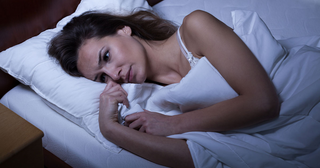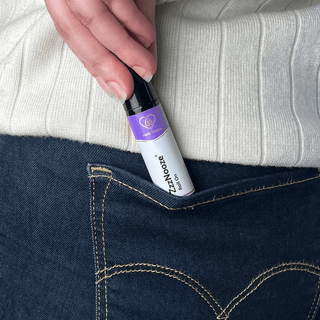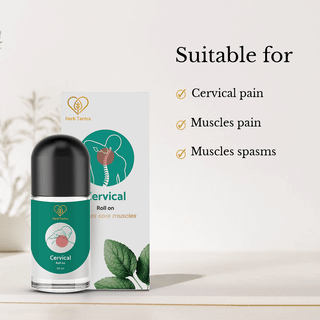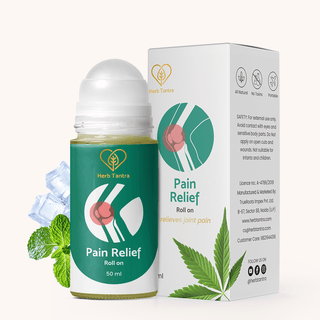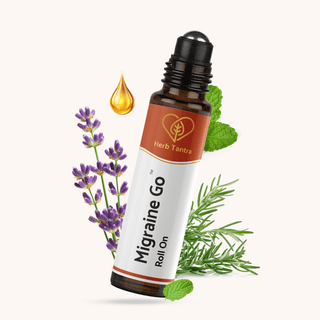If you’ve ever laid in bed, exhausted but unable to drift off because your mind won’t stop racing, you may have experienced sleep anxiety. This condition goes beyond the occasional restless night—it's when the very thought of “needing to sleep” creates stress, which in turn makes it harder to sleep. A vicious cycle begins, leading to insomnia, poor sleep quality, and heightened anxiety the next day.
In this blog, we’ll explore what sleep anxiety is, how anxious thoughts before bed affect rest, and natural remedies that can help you calm both body and mind.
What is sleep anxiety?
Sleep anxiety refers to the fear or worry about not being able to sleep, which ironically makes falling asleep even harder. People with sleep anxiety often:
- Check the clock repeatedly while lying in bed.
- Feel tense, restless, or mentally “wired” at night.
- Worry about being tired the next day.
- Experience racing thoughts just when they should be winding down.
Unlike general insomnia, sleep anxiety is closely linked to mental health—especially stress, anxiety disorders, and overthinking habits. Studies show that poor sleep and anxiety feed into one another, creating a cycle that impacts mood, focus, and even immunity.
How anxious thoughts before bed lead to sleepless nights
Imagine this - you’re finally lying down after a long day, but instead of relaxing, your brain starts replaying conversations, to-do lists, or “what if” scenarios. These anxious thoughts trigger your body’s stress response—raising heart rate, releasing cortisol, and making you feel alert instead of drowsy.
That’s why so many people with sleep anxiety describe the experience as being “tired but wired.” The mind is ready for rest, but the body thinks it needs to stay awake. Over time, this habit of bedtime worry turns the bedroom into a place of stress rather than sleep.
Can lifestyle changes help ease sleep anxiety?
Absolutely. While medication is sometimes prescribed for severe cases, most people find relief by gently retraining their bodies and minds to associate bedtime with calm. Some science-backed approaches include:
1. Practicing sleep hygiene
- Keep a consistent sleep schedule (even on weekends).
- Avoid caffeine, heavy meals, and screens before bed.
- Create a dark, cool, and quiet environment—small changes in lighting or temperature can greatly improve sleep quality.
2. Relaxation rituals before bed
Instead of scrolling on your phone, try activities that quiet the mind -
- Journaling to release anxious thoughts.
- Guided meditation or deep breathing.
- Herbal tea blends like Herb Tantra’s Sleep Buddy Tea, made with Valerian root, spearmint, and ashwagandha, which naturally support relaxation.
3. Aromatherapy and topical relaxation aids
Herbal roll-ons are another effective way to signal “wind-down time” to your body. For instance, the Sleep Buddy Roll On combines Valerian root, chamomile, and bergamot—a slightly stronger blend that helps during intense anxiety-fueled nights. For everyday sleep support, the lighter Zznooze Roll On with lavender and cedarwood offers gentle, calming relief. Rolling them on your wrists, temples, or soles of the feet creates a soothing sensory cue for bedtime.
Do meditation and journaling really work for insomnia?
Yes—several studies have shown that mindfulness meditation can reduce pre-sleep worry, improve sleep efficiency, and decrease night-time awakenings. Journaling also helps by giving anxious thoughts a “home” outside of your mind, so you’re less likely to carry them into bed.
Paired with natural aids like herbal teas or roll-ons, these techniques form a holistic bedtime routine that lowers stress hormones and signals your body to prepare for deep rest.
How to break the cycle of sleep anxiety
Sleep anxiety can feel overwhelming, but small consistent habits help rewire your relationship with bedtime. Here’s a step-by-step approach:
- Shift focus away from “falling asleep.” Instead, think of bedtime as “relaxation time.” Sleep will follow naturally.
- Use relaxation cues like dim lighting, calming aromas, and gentle teas to signal the brain it’s safe to rest.
- Avoid clock-watching. Turn the clock away to stop the stress cycle of “if I don’t sleep now, I’ll be exhausted tomorrow.”
- Be patient. Sleep anxiety doesn’t vanish overnight, but with steady practice, your mind and body relearn how to rest.
Final Thoughts
Sleep anxiety is more common than most people realize, but it doesn’t have to control your nights. By understanding the mind–sleep connection, practicing good sleep hygiene, and using natural remedies—from journaling to herbal aids like the Herb Tantra Sleep Better Range—you can create a calm, nurturing environment that supports deep, restorative sleep.
FAQs on Sleep Anxiety & Better Rest
1. What is the difference between insomnia and sleep anxiety?
Insomnia refers to difficulty falling or staying asleep, while sleep anxiety is the worry about not being able to sleep, which can lead to insomnia.
2. How many hours of sleep should adults aim for?
Most healthy adults need 7–9 hours of sleep per night for optimal health and performance.
3. Can herbal remedies really help with sleep anxiety?
Yes—herbs like Valerian root, chamomile, and lavender have been shown to calm the nervous system, making them natural aids for better rest.
4. Does journaling before bed improve sleep quality?
Absolutely. Journaling helps clear anxious thoughts, reducing the mental clutter that keeps you awake.
5. Can bedroom lighting, noise, or temperature affect sleep anxiety?
Yes—bright lights, noise, or an overly warm room can worsen anxiety and disturb sleep. Aim for a dark, cool, and quiet environment.



